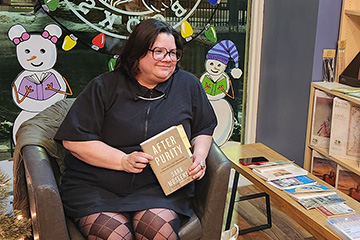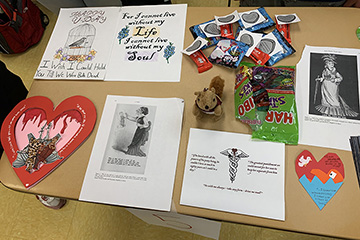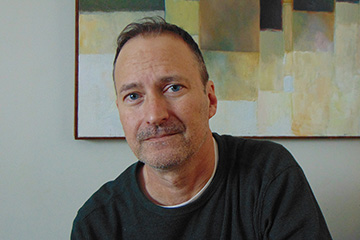The nature of poetry
Central Michigan University students inspired by Beaver Island creative writing course
There’s no better classroom than the wall-less wonders of woods and streams, of lake and stars. For students of Professor Robert Fanning’s English course, “Wonder and Wander,” Beaver Island is the classroom. In mid-August, students ferried over from the mainland to the CMU Biological Station, their home for a week of inspiration.
“The course is called ‘wonder and wander’ because that’s precisely what we do,” said Fanning. “We spend mornings at the station reading poems and doing writing activities, and the afternoons wandering and exploring this rich, magical place and doing more writing.”
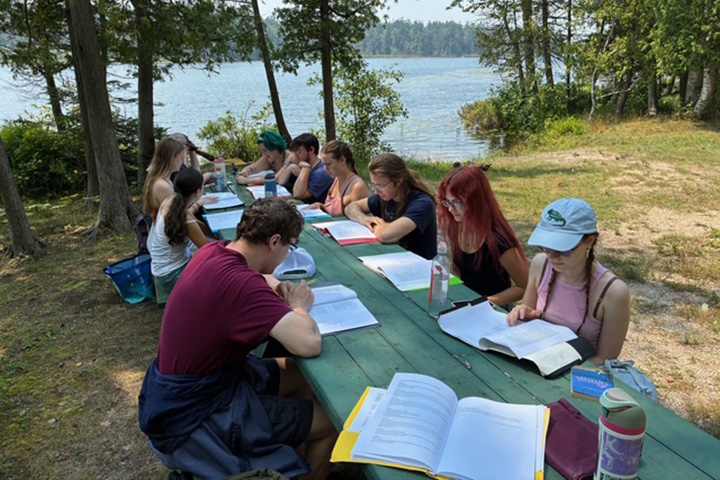
Fanning’s students traverse the whole island during the course, bumping over the island’s dirt roads in CMU vans and stopping at sites along the way to hike and pay close attention to their natural surroundings. There may not be desks or a whiteboard, but with journals and pens in hand, they write at the lakefront, the lighthouse, in prairies, and beside streams, after hikes.
“I’ve always learned more from real world experiences and can draw inspiration and lessons from them much easier than in a traditional class,” said Mount Pleasant senior and English major Rachel Lobert, reflecting on the course.
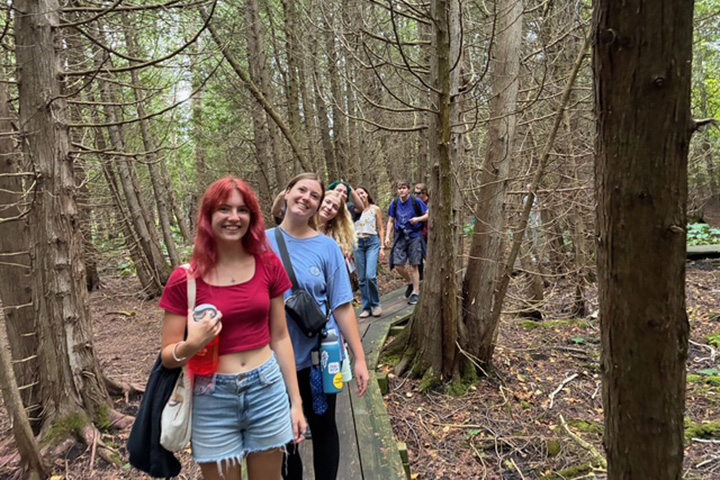
Fanning provides students with a packet of nature inspired poems and eco-poetry. Each day is organized around themes such as “connection,” “relationship,” and “conversation.”
Students like Brenna Dean, a second-year Masters in Creative Writing student from Saginaw definitely felt the “connection” theme.
“I think one of the main reasons this course feels so beneficial and refreshing and challenging, aside from its location, is because there’s such an emphasis placed on connecting with one another, and we were all in an environment that allowed for that in ways a 16-week course doesn’t,” said Dean.
For Fanning, as poet and professor, connection is to be found in the silent calm of meditation, which is how each day begins. This focus on calm affected Autumn Malinowski, a Mount Pleasant senior majoring in English and Psychology.
“One thing that stood out to me was how comfortable I became with silence, or just hearing sounds from nature,” said Malinowski. “I learned to be more comfortable with the world around me, and that I don’t have to fill every silence with noise.”
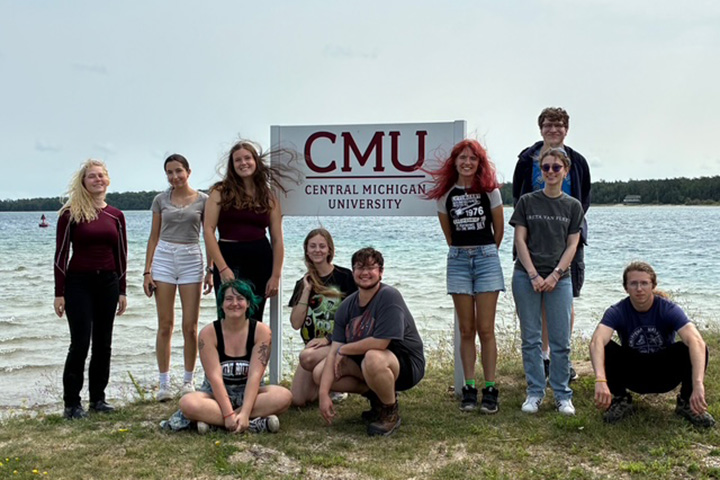
Anaïs Pangle is a seasoned veteran of the island and the CMU Biological Station, as the daughter of two CMU Professors and Biological Station Directors, Kevin and Wiline Pangle. A high school junior, she took the course as dual enrollment, especially because she wanted to see the island in a new way, through a creative lens.
“I had many questions and assumptions about poetry, especially poetry about the natural world, that were resolved,” said Pangle. “For example, the possibility of blending scientific knowledge with human emotions such as wonder and curiosity. The prompts and ideas given in class inspired me and opened up a lot of possibilities in my writing as experimentation.”
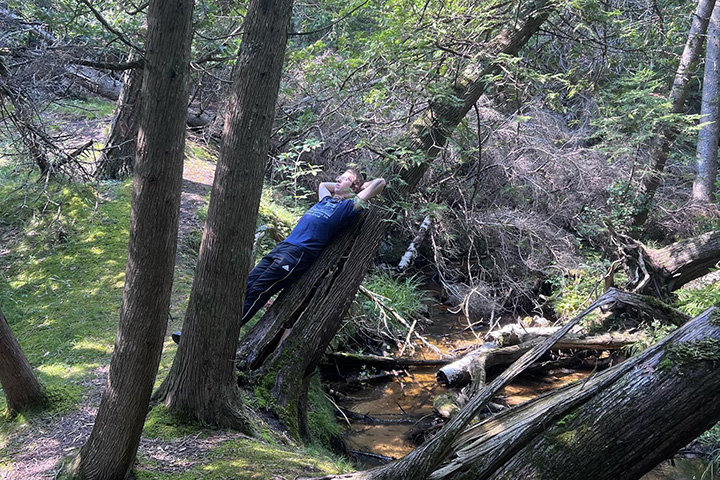
This sentiment was echoed by Nick Hertzler, another veteran of the CMU Biological Station. As a Biology major, Hertzler had been to the Biological Station four times previously, but like Pangle, he wanted to tap into his creativity this time around, as an English major and Creative Writing minor.
“I feel closer to nature than I did before this course, because I viewed nature from the angle of a poet,” Hertzler said. “I believe that more people would appreciate the sciences if viewed from this perspective.”
Students who are interested in taking Fanning’s course next year (or the art class taught by his wife, CMU Park Library Art Coordinator Denise Fanning,) can contact the CMU Biological Station for further information.

